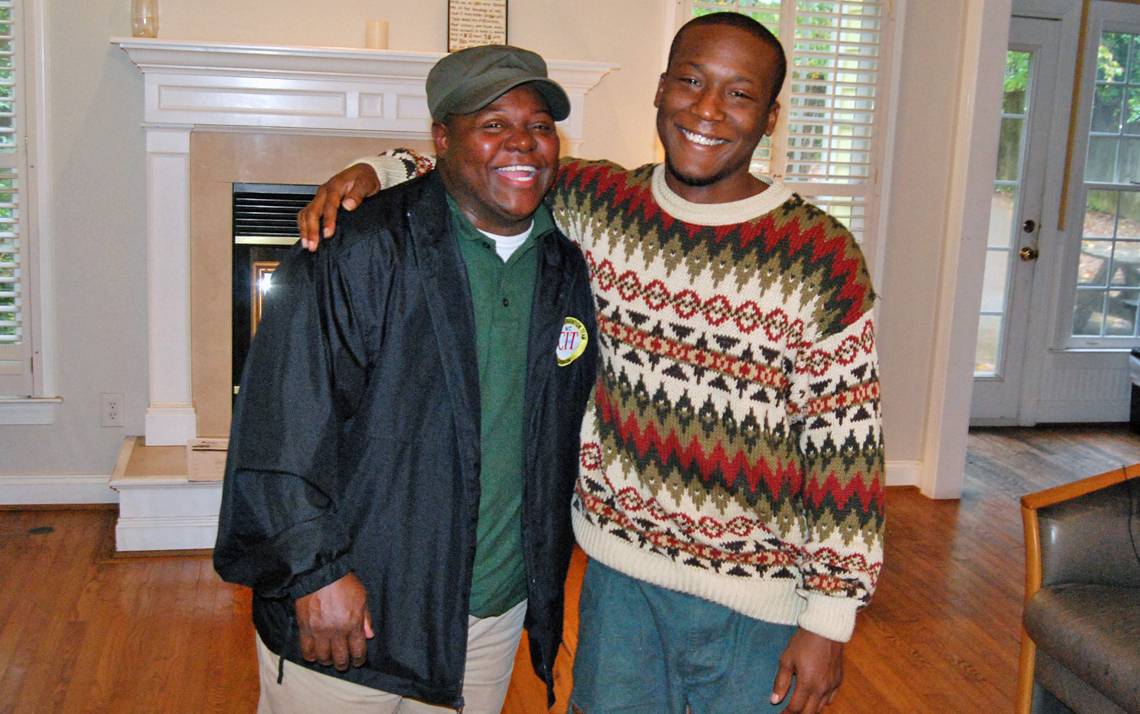Guiding the Way Home
Duke University Police Department program links homeless to help

Five years of being homeless pushed Tiquan McMillian to his breaking point last summer.
Addiction and mental illness left him sleeping on benches and walking Durham’s streets in threadbare shoes. His goal each day was survival.
One night, McMillian ended up in Duke University Hospital’s emergency department with nowhere else to go.
“I was at the end of my rope,” McMillian said. “I was just tired of the way I was living.”
When members of the Duke University Police Department found McMillian, one asked a question McMillian wasn’t expecting.
“If I could do anything for you right now, what would you want me to do?” Malik Kennedy asked.
Kennedy is the Duke Police’s Housing Abatement Liaison and runs the department’s Homeless Abatement Program as the initiative’s sole staff member.
The program was created by Duke officers who wanted to address issues at the root of homelessness and find an alternative to citations that could hinder future attempts to find housing or jobs if left unpaid.
“Our officers have hearts,” Kennedy said.
Started in 2016, the program links the homeless encountered at Duke with existing resources – temporary housing, substance abuse and mental health counseling and job training programs – that can help them.
“Although Durham has many resources, navigating them can be time-consuming and confusing,” said Duke Police Chief John Dailey “We wanted to make things better, and we needed a person dedicated to understanding the processes and who had the time to follow through.”
Kennedy, who joined Duke Police in 2013 as a security officer, has proven to be that person.
In 2017, Kennedy earned a Presidential Award, one of Duke’s highest honors, for his compassionate work with homeless people and the strong relationships he’s built with community non-profits working to address multi-layered problems that leave people on the streets.
“He continues to hold the hope that people can get better and it shows in his dedication to the job,” LaKeyta Johnson, Emergency Department Liaison with Duke Population Health Management Office, wrote in a letter supporting Kennedy’s nomination.
Kennedy estimates that around half of the roughly 230 people who have accepted his help find housing and begin the process of rebuilding their lives.
McMillian, whom Kennedy encountered last summer, is one of them.
In the past few months, McMillian has lived in a drug-free home in Durham for men in recovery. It’s where he’s untangling the complicated problems that left him homeless and healing a body that, after years on the streets, makes him feel much older than 27.
“I appreciated that someone took time out to help me,” McMillian said. “There’s still work that needs to be done.
But I’m OK.”
Learn more about the Duke University Police Department at police.duke.edu